OneAuburn centralizes stakeholder data and communication tools in one place and enables data-driven decisions and personalized experiences to all university stakeholders. As a key goal of the 2019-2024 strategic plan, OneAuburn is the process by which Auburn University can work together to share data and support student and employee success.
Over half of Auburn’s colleges/schools have adopted Salesforce and are leveraging clean, more accurate data from the data warehouse.
Applications including Qlik and Qualtrics are now integrated with the data warehouse making those tools more powerful. These integrations help corral data into a more useable, real-time format.
Stakeholders across campus are realizing the value of standardized definitions and best practices that are promoted by data governance.
Marketing Cloud provides Auburn’s first enterprise level communication tool/preference management center. The platform ensures communicators have full access to powerful tools to better engage with their constituents.
Stakeholders from Academics, Advancement, Admissions, and Human Resources are actively identifying ways to share data and improve processes.
Colleagues from across campus including Advancement, Athletics, and Admissions are helping to remove data silos by building API integrations with the data warehouse. This provides a network with future integrations.
Efficient use of the data warehouse eliminates redundant applications as more CRM functionality becomes available. The financial savings from fewer technical applications is redirected toward other resources.
Data governance is the best practices and processes that make the most efficient use of institutional data. To support effective and innovative management, Auburn’s institutional data must be accessible, accurate, and easily integrated across the university’s information systems to support our organization’s strategic goals. At its core, OneAuburn works to remove data silos and moves toward a shared data platform.
Auburn University currently licenses multiple software products that support the institution’s programs and business functions. Over time, these products often become siloed among the unit(s) using them, resulting in siloed data. This current practice typically leads to uninformed decisions, duplicated work, and the unnecessary spending of resources that result from data that is not accessible from a common source. Apart from increasing costs each year to maintain numerous software platforms (many of which duplicate similar functions) the university can benefit from more strategic information sharing that support decisions involving resources or other implications.
In April 2020, the Data Governance Committee became a university recognized committee. Additionally, the Data Council serves as a tactical working group addressing more specific data element needs. Data governance and business processes must continue to mature as more data is stored and becomes available.
Salesforce is a customer relationship Management (CRM) system that not only stores student data but captures the relationship between students and the services offered at Auburn University. In 2019, Auburn purchased Salesforce as the enterprise CRM application. A cloud-based tool, Salesforce allows the university to more accurately track information related to the student life cycle. The academic org is the first implementation of the Salesforce CRM and is the system of engagement for supporting student success.
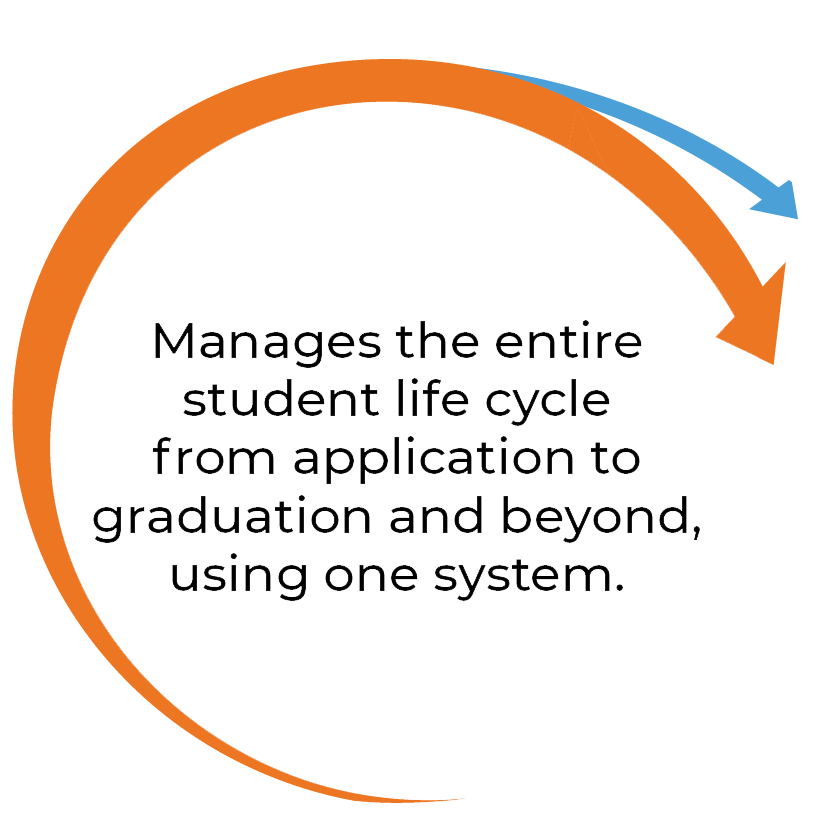
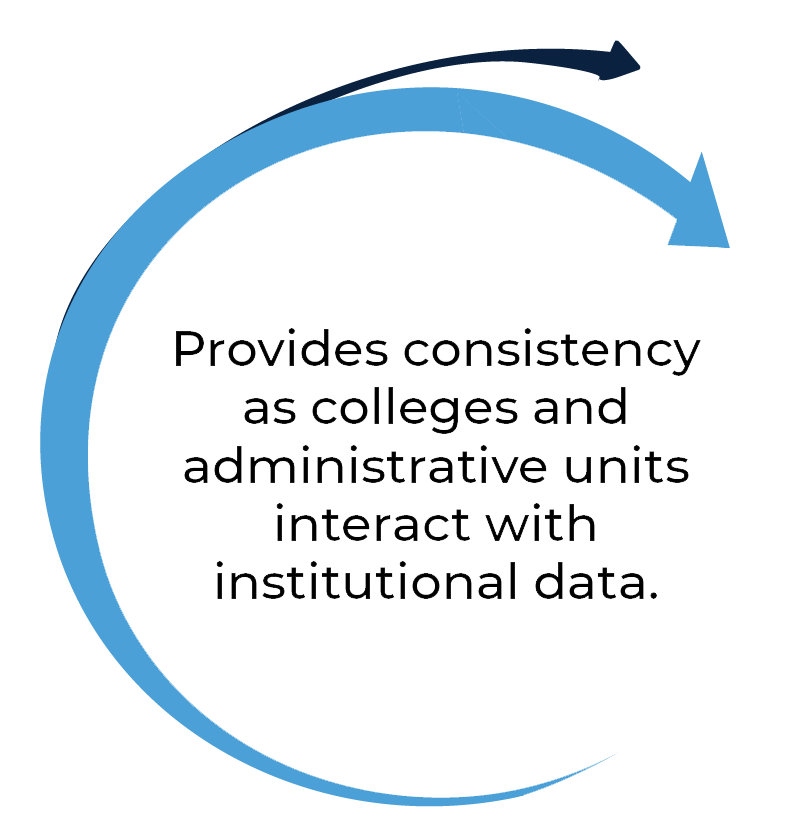
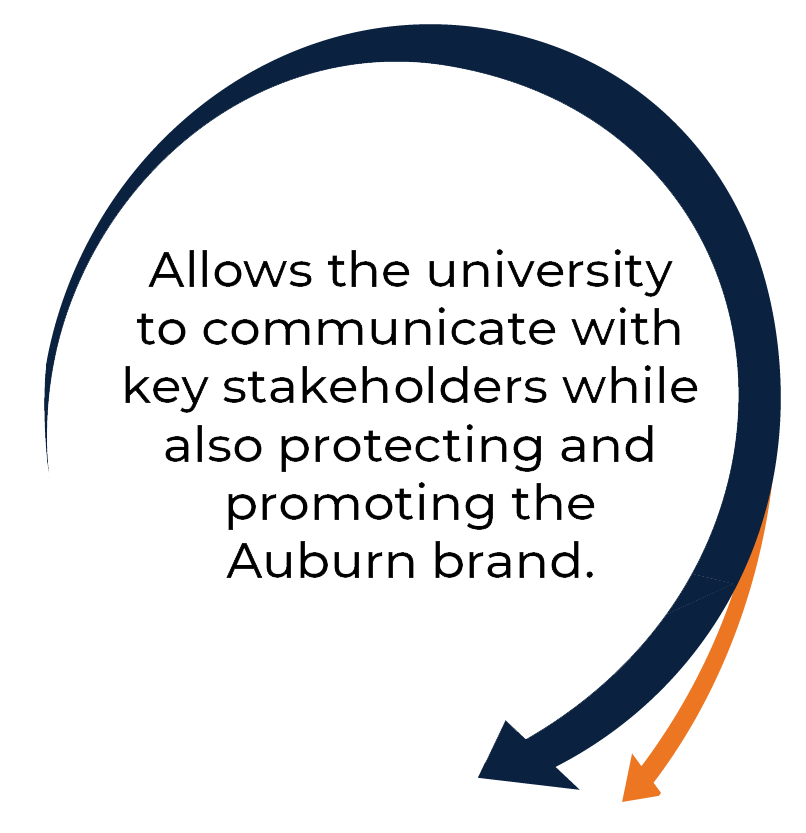
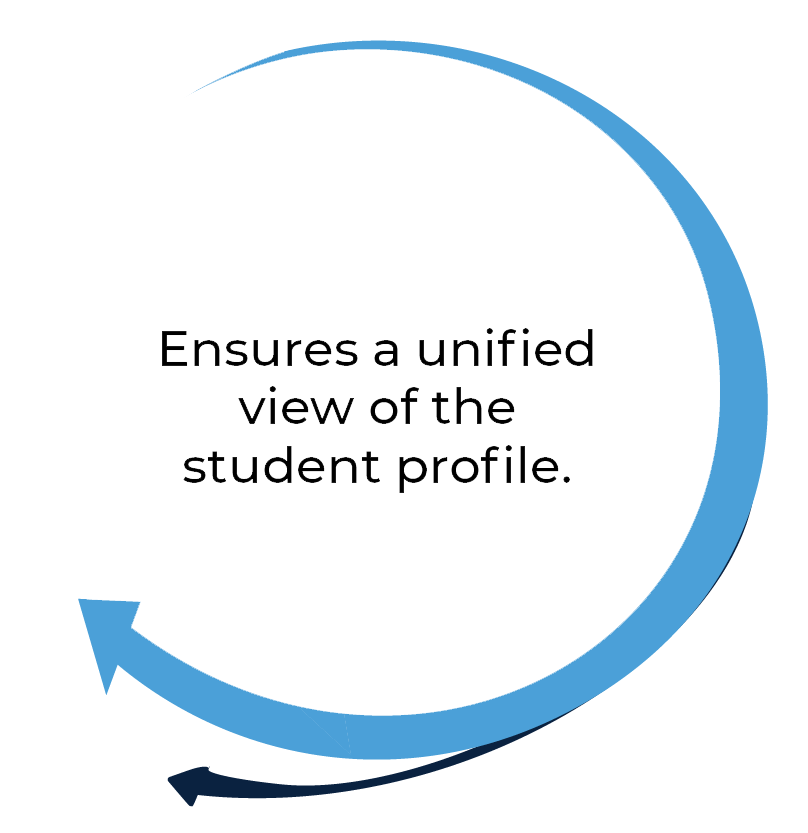
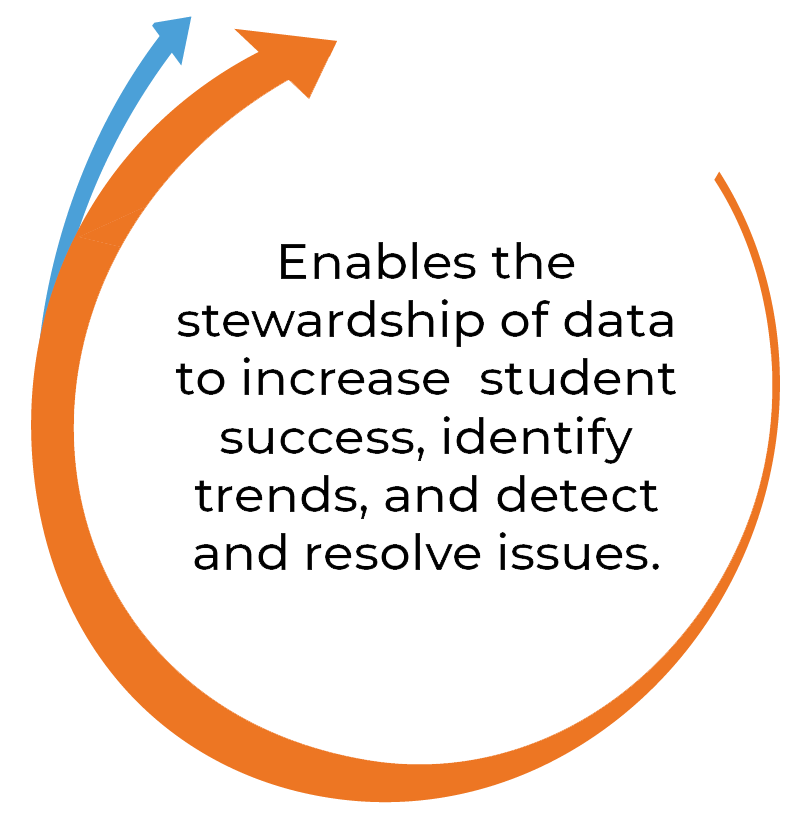
Current functionality includes, but is not limited to:
A significant component to the CRM project is a product called Marketing Cloud, a communications and marketing tool that helps Auburn more effectively interact and communicate with our constituents. Marketing Cloud can be used at any time but is most successful when combined with the contacts managed in the academic CRM.
Utilizing Marketing Cloud, Auburn’s communication and marketing professionals should use the CRM to strengthen the university’s structure for acquiring information about the institution and translating it into engaging stories and experiences through accessible and engaging channels. Additionally, communications and marketing staff should focus on developing messaging and strategies that enable partners across campus to communicate more effectively. As such, while Marketing Cloud can be used at any time, it is most successful when combined with the contacts managed in the academic CRM.
Auburn University’s instance of Marketing Cloud includes the following products:
A cross-channel content management tool that allows you to consolidate images, documents, and content in a single location for use in Marketing Cloud.
Allows marketers to build and send personalized promotional, transactional, and triggered emails with robust real-time reporting to track and optimize performance.
A powerful all-in-one social media marketing and management suite that allows you to listen, engage, publish, and monitor all in one place.
Marketing Cloud’s premier campaign planning and execution tool that empowers marketers to design and automate campaigns to guide customers through a series of interactions with your brand including through email, mobile, advertising, web, direct mail, and more.
OneAuburn is a comprehensive effort by the university to ensure the university’s data management approaches support the mission and vision of Auburn University. A key goal of the 2019-2024 Strategic Plan, OneAuburn is the process by which the university can work together to share data and support student and employee success. Working with campus partners, OneAuburn supports the use of institutional data through planning, execution, and continual oversight of relevant policies, practices, and projects.
At its core, institutional data is necessary to support and maintain Auburn’s central mission of teaching, research, and service. To support effective and innovative management, Auburn’s institutional data must be accessible, accurate, and easily integrated across the university’s information system to support our organization’s strategic goals.
Auburn’s leadership recognizes and appreciates the value-added benefits of being able to aggregate information across multiple complex systems and business processes. In 2018, the university formed a data governance group to establish and implement data governance policies, procedures, standards, and guidelines. This group is working to manage, protect, and ensure the integrity and usefulness of university data.
Salesforce is a cloud-based tool that allows the university to connect all of its data in one place. With Salesforce, Auburn can more accurately track information about students, faculty, staff, alumni, and other groups. Auburn employees benefit from a consistent, more reliable data source that supports better, more informed decisions that advance the mission and goals of the institution.
Auburn University currently licenses multiple software products that support the institution’s programs and business functions. Over time, these products often become siloed among the unit(s) using them, resulting in data that becomes siloed. This current practice typically leads to uninformed decisions, duplicated work, and the unnecessary spending of resources that result from data that is not accessible from a common source. By sharing information appropriately and securely, the university will benefit from having a more strategic approach to data management and will identify opportunities to reduce duplicate systems.
Examples of these benefits include features such as better tracking and monitoring of employee information, more concise marketing and recruiting campaigns, more accurate monitoring and tracking of student information and engagement data across the student lifecycle, and improved business practices.
Salesforce supports a suite of applications currently licensed by the Office of Information Technology. Programs such as Banner, DegreeWorks, Advise Assist, and Canvas are crucial to advancing the university’s mission and supporting the services and functions of university departments. Salesforce will consolidate data sources from multiple applications to provide a single source view of a constituent, thereby increasing efficiency and enabling more purposeful decision making.
Salesforce CRM is the platform that maintains data and includes all university contacts, the relationship(s) contacts have with Auburn University, and the interactions between Auburn University and these contacts. Salesforce Marketing Cloud is the mass digital communications component of the Salesforce CRM platform. Marketing Cloud includes products to manage content, social media, email communications, and campaign planning.
Outlook will continue to be used for email communications between individuals and work groups at the university for business communication with outside parties. Marketing Cloud will be used for mass communication with all audiences, especially when it is important to track and measure results, such as delivery, open, clickthrough, and conversation rates. Replies to emails sent through Marketing Cloud can be directed to Outlook email addresses.
Is your office or unit interested in engaging with Salesforce? Reach out to us to for a discovery meeting to review either your data or communication goals and learn how we can best support your efforts.
Each college or office will designate a dedicated resource to support and champion the use of the Salesforce CRM. Known as a Functional Administrator, this individual is responsible for supporting the CRM application within your college or office and contributes to the oversight and strategic planning necessary to ensure alignment with the larger institution.
Functional Administrators will complete upgrades, solution design, analysis, troubleshooting, bug fixes, testing, and documentation for the user-facing applications and products within Salesforce. Additionally, the Functional Administrator will develop business solutions with the CRM platform for both new projects and ongoing production. This position works with end users to understand and document their needs as business requirements.
To schedule a discovery meeting related to the CRM, please reach out to the following staff:
Lori Sewell
Enterprise System Architect
lgs0017@auburn.edu
Like the CRM implementation, we highly recommend a college or business unit identifies a team member to fully support the use of Salesforce Marketing Cloud. Typically, a communications/marketing specialist, this individual is responsible for supporting Marketing Cloud within your college or office and contributes to overall brand alignment with the larger institution by engaging in Content Builder to share content internally.
Marketing Cloud administrators will design, personalize and send engaging communications; build automations to streamline and organize frequent communication campaigns; facilitate the management of an email preferences center for your unit or office; access key data about outgoing communications; and manage social media marketing all in one place.
To schedule a discovery meeting related to Marketing Cloud, please reach out to the following staff:
Courtney Edwards
Salesforce Marketing Cloud Manager
clr0020@auburn.edu